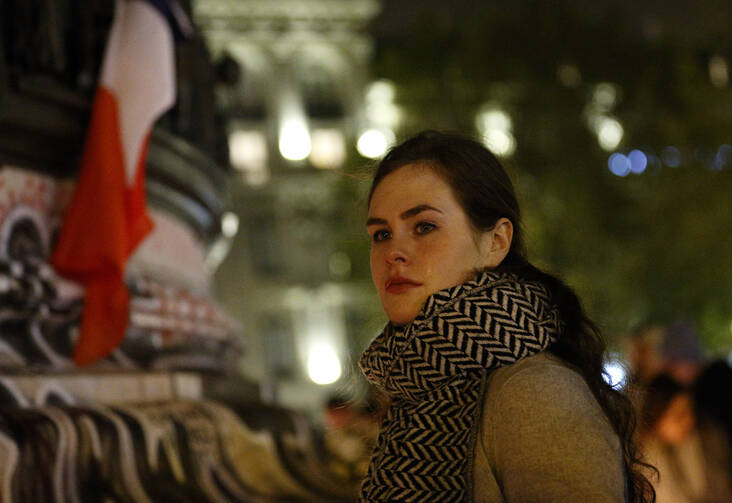The Théâtre du Nord-Ouest is a hidden temple in the cultural web of Paris. Housed in a nondescript 1920s movie palace, the repertory company houses two austere black-box theaters to present the classics and avant-garde works. There is rarely much of a set, fewer props and stark monochrome costumes. The performances are executed with religious devotion. The ushers seem to be guiding you toward your pew amid the hushed parishioners in the dim light.
Each year the troupe performs the entire canon of a single playwright. This year’s choice was the neoclassical tragedian Jean Racine. For an American, Racine is an acquired taste, but I have revered his taut verse and anguished characters since I directed his “Phaedra” years ago at Wheeling College. During my sabbatical in Paris last fall, I purchased a season pass and looked forward to seeing all his dramas. The fact that I was finishing a monograph on another Jansenist, Blaise Pascal, deepened my desire to rediscover Racine.
The sabbatical was not the serene oasis I had planned. On Nov. 13 Islamic terrorists allied with ISIS murdered 130 Parisians, wounded hundreds more and plunged the city into mourning, fear and lockdown. Racine suddenly became an interpreter of the religious violence that had just erupted on the cobblestones outside the theater.
Many of the Racine plays unveiled sacral violence. The rarely produced “Iphigenia” reworked the ancient Greek myth. To obtain the winds they need to propel their ships toward Troy, the Greeks must sacrifice Iphigenia. Placing the good of the state above her own life, Iphigenia, the daughter of King Agamemnon, accepts the summons to human sacrifice, but Agamemnon is torn between duty to the state and love for his frail daughter. The oddly happy ending—in this version the oracle intervenes in the nick of time to announce that the Greeks were ready to sacrifice the wrong Iphigenia—does not change the theological rules of the play’s setting: a cosmos controlled by mysterious deities satisfied only with the blood of the innocent.
On Nov. 15 I joined thousands of other Parisians attending a Mass for the terrorist victims at the Cathedral of Notre-Dame. In his sermon Archbishop André Vingt-Trois raised a neuralgic question: “How is it possible that young people formed in our schools and our neighborhoods could have known such distress that the violence of the caliphate came to represent some sort of driving ideal?” The terrorists were not impoverished immigrants; most were French citizens who had enjoyed the middle-class benefits of the republic. How could they massacre their fellow citizens in cold blood in the name of God?
When I saw the performance of “Phaedra,” the play seemed different from the work I had once directed. The psychological horror was still there. Phaedra incestuously attempts to seduce her stepson, Hippolytus. When her husband, Theseus, unexpectedly returns from war, Phaedra covers up her crime by blaming Hippolytus for attempted rape. Unjustly exiled by his father, Hippolytus meets a violent death; and as the truth emerges, Phaedra takes her own life. But the religious subtext to the violence had taken on a new life. Unable to control her lust and violence, Phaedra claims she is driven “like a ship to the rocks” by the vengeful goddess Venus. Hippolytus’s death is brought about by Neptune in response to Theseus’ prayer for retribution. Behind the psychological torment is the implacable will of jealous gods driving their votaries to fury and ultimately to murder and suicide.
During the sabbatical, I often attended noon Mass at the church of Saint-Germain l’Auxerrois, the old royal chapel adjacent to the Louvre. On Aug. 23, 1572, Catholic fanatics began the Saint Bartholomew’s Day massacre by ringing the bell in the church’s Gothic tower. Thousands of Protestants who had gathered for the wedding of the king’s sister to the Protestant Henry of Navarre (a future French king) were murdered. After the attack in November I often stopped in front of the bell tower as I left the church. Why do we murder each other in the name of God? This is not a Muslim or a Christian or a Jewish or a pagan Greek problem. This is a terror buried in the veiled human heart. John Calvin once remarked that the human heart is an efficient idol factory. But why is this idolatry so lethal?
Racine understood.








